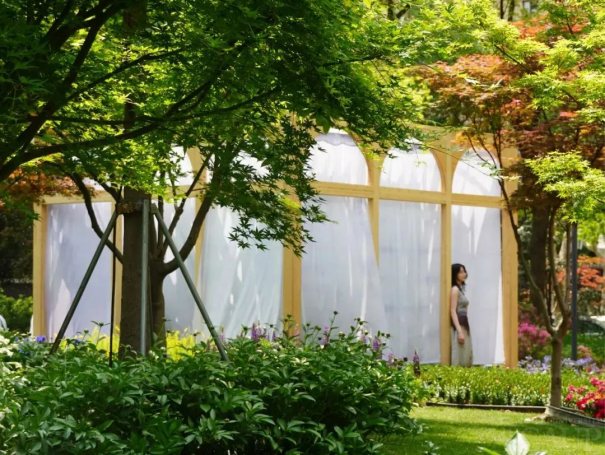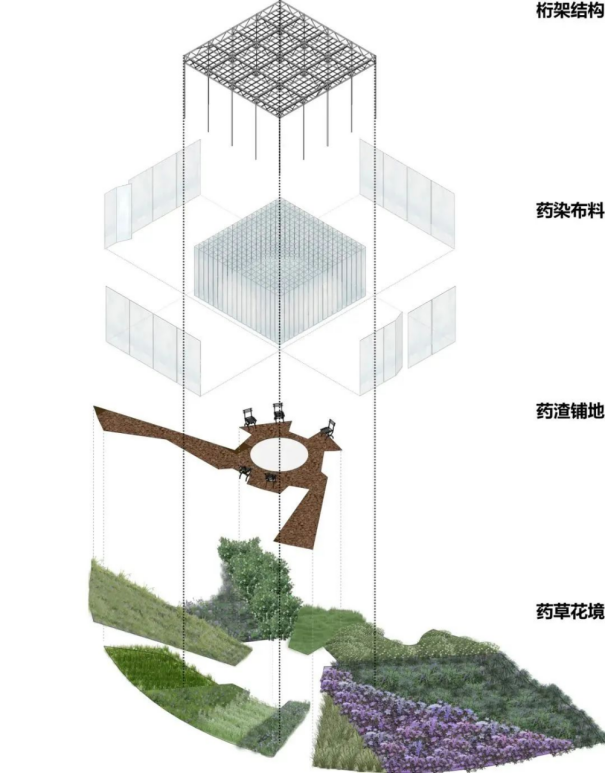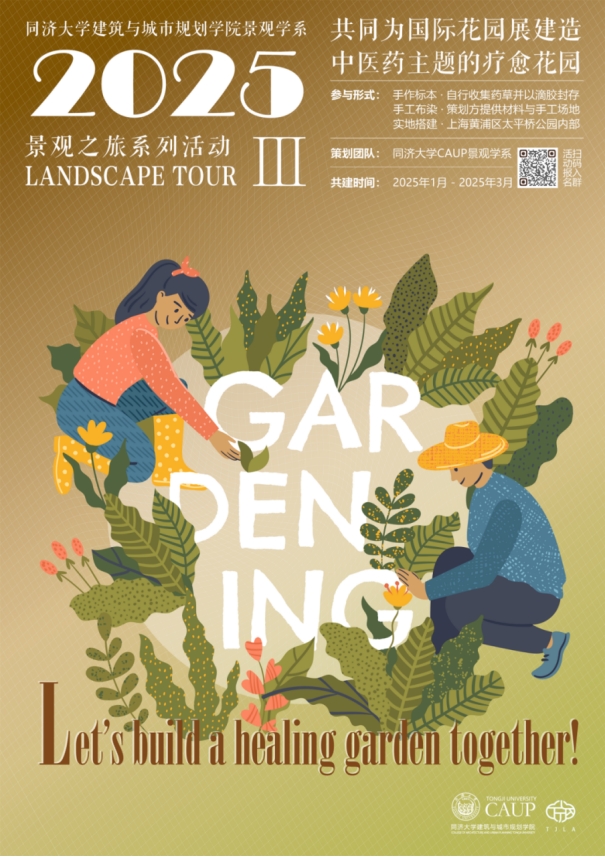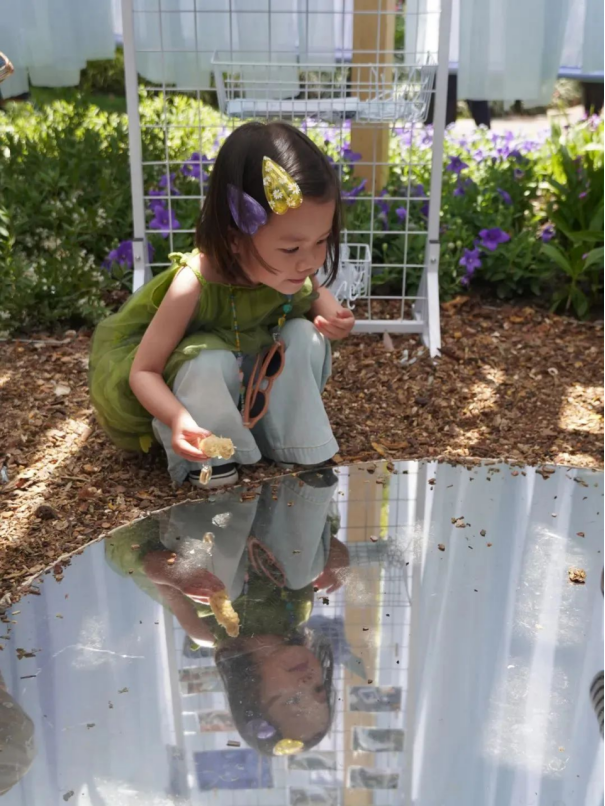

On April 18, the 2025 Shanghai International Flower Show officially opened at its Huangpu District main venue, where the Harmonizing Heaven, Earth & Mind-Body TCM Healing Garden—a collaborative project by the Landscape Architecture Department of Tongji University's College of Architecture and Urban Planning and Shanghai Huangpu District Xiangshan Hospital of Traditional Chinese Medicine—made its debut at Taipingqiao Park.
Occupying a 40㎡site, the garden is a featured exhibit within the Emotional Soothing & Holistic Healing section of the Blossoms in New Horizons thematic zone. Rooted in the TCM philosophies of heaven's roundness, earth's squareness and yin-yang equilibrium, the design integrates artistic expressions of Chinese medicinal herbs with immersive public engagement, creating a novel healing landscape that fosters harmonious resonance between humanity and nature.
Drawing on the Taoist principles of heaven's roundness, earth's squareness and yin-yang balance, the design merges natural site traits to craft a square-outer, round-inner healing space. The square base, compacted with medicinal residue, symbolizes earth's nurturing force; the dome, woven with herbal-dyed cloth, mirrors heaven's embrace. Mirrored surfaces amplify the duality of heaven and earth, creating a dualistic garden for unity with nature. Twelve herbs—like Platycodon (lungs), Lilium (heart), and Gardenia (mind)—are arranged by the Five Elements, blending colors, scents, and textures. Visitors breathe with the plants, touch the earth's energy, and find harmony in this celestial-terrestrial sanctum.
Student Co-Creation and Cultural Dissemination.
To amplify the cultural influence of Traditional Chinese Medicine (TCM), the project initiated a cross-grade student engagement initiative during the pre-design and construction phases, mobilizing landscape architecture students from all academic years to participate in collaborative building activities. Students contributed culturally rich modular components for garden construction, such as herbal-dyed textiles and plant-based installations, fostering deepened interest and identity with TCM culture through hands-on practice. This approach established a co-create, co-build, co-share cultural participation model, bridging academic learning with cultural heritage.
Immersive Experiential Zone: Multisensory Healing & Cultural Education.
The garden integrates a multisensory healing environment featuring medicinal herbs, herbal-dyed fabric canopies, and interactive elements that engage vision, olfaction, touch, and audition. Visitors may closely observe plant morphologies, textures, and aromatic profiles, gaining intuitive knowledge of TCM herbs through tactile and olfactory exploration.



 ABOUT US
ABOUT US




